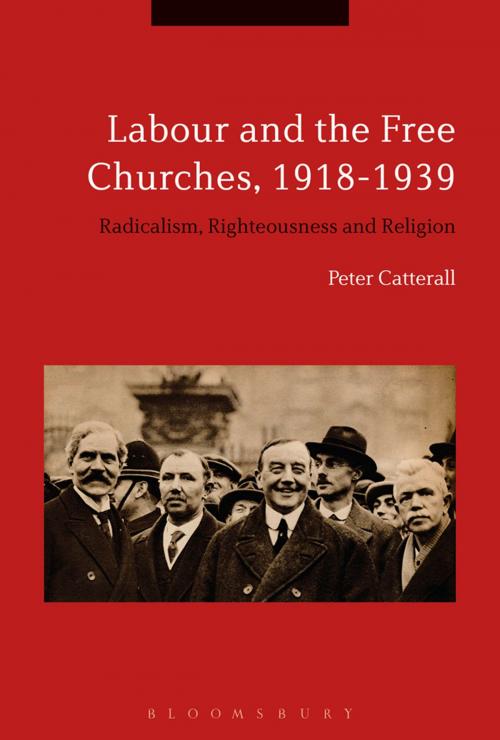Labour and the Free Churches, 1918-1939
Radicalism, Righteousness and Religion
Nonfiction, Religion & Spirituality, Reference, History, British| Author: | Peter Catterall | ISBN: | 9781441125996 |
| Publisher: | Bloomsbury Publishing | Publication: | October 6, 2016 |
| Imprint: | Bloomsbury Academic | Language: | English |
| Author: | Peter Catterall |
| ISBN: | 9781441125996 |
| Publisher: | Bloomsbury Publishing |
| Publication: | October 6, 2016 |
| Imprint: | Bloomsbury Academic |
| Language: | English |
Did the Labour Party, in Morgan Phillips' famous phrase, owe 'more to Methodism than Marx'? Were the founding fathers of the party nurtured in the chapels of Nonconformity and shaped by their emphases on liberty, conscience and the value of every human being in the eyes of God? How did the Free Churches, traditionally allied to the Liberal Party, react to the growing importance of the Labour Party between the wars? This book addresses these questions at a range of levels: including organisation; rhetoric; policies and ideals; and electoral politics. It is shown that the distinctive religious setting in which Labour emerged indeed helps to explain the differences between it and more Marxist counterparts on the Continent, and that this setting continued to influence Labour approaches towards welfare, nationalisation and industrial relations between the wars. In the process Labour also adopted some of the righteousness of tone of the Free Churches.
This setting was, however, changing. Dropping their traditional suspicion of the State, Nonconformists instead increasingly invested it with religious values, helping to turn it through its growing welfare functions into the provider of practical Christianity. This nationalisation of religion continues to shape British attitudes to the welfare state as well as imposing narrowly utilitarian and material tests of relevance upon the churches and other social institutions. The elevation of the State was not, however, intended as an end in itself. What mattered were the social and individual outcomes. Socialism, for those Free Churchmen and women who helped to shape Labour in the early twentieth century, was about improving society as much as systems.
Did the Labour Party, in Morgan Phillips' famous phrase, owe 'more to Methodism than Marx'? Were the founding fathers of the party nurtured in the chapels of Nonconformity and shaped by their emphases on liberty, conscience and the value of every human being in the eyes of God? How did the Free Churches, traditionally allied to the Liberal Party, react to the growing importance of the Labour Party between the wars? This book addresses these questions at a range of levels: including organisation; rhetoric; policies and ideals; and electoral politics. It is shown that the distinctive religious setting in which Labour emerged indeed helps to explain the differences between it and more Marxist counterparts on the Continent, and that this setting continued to influence Labour approaches towards welfare, nationalisation and industrial relations between the wars. In the process Labour also adopted some of the righteousness of tone of the Free Churches.
This setting was, however, changing. Dropping their traditional suspicion of the State, Nonconformists instead increasingly invested it with religious values, helping to turn it through its growing welfare functions into the provider of practical Christianity. This nationalisation of religion continues to shape British attitudes to the welfare state as well as imposing narrowly utilitarian and material tests of relevance upon the churches and other social institutions. The elevation of the State was not, however, intended as an end in itself. What mattered were the social and individual outcomes. Socialism, for those Free Churchmen and women who helped to shape Labour in the early twentieth century, was about improving society as much as systems.















